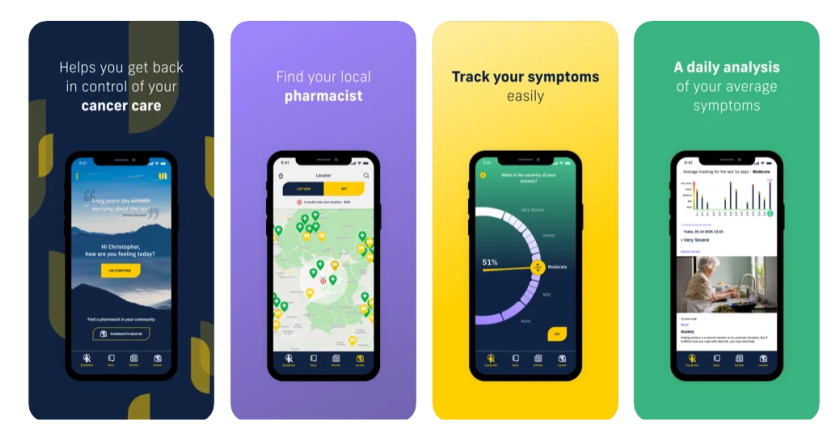Accord launches app to help cancer patients manage symptoms

Accord Healthcare has introduced a new app in the UK designed to help people undergoing treatment for cancer maintain their physical and mental wellbeing.
The Unify Health app helps patients understand their illness, track symptoms and treatment progress, receive tips on health habits and importantly can also be used to connect patients with local pharmacists who can provide additional advice and support.
The information in the app is drawn from medical charity Macmillan Cancer Care, which has been vocal in expressing its concerns about the chronic shortage of staffing and resources in cancer care in the NHS amid a sharp reduction in diagnoses and admissions as a result of the pandemic.
Accord reckons that digital health tools like the new app might help patients overcome bewilderment felt when facing cancer therapy, as well as the fear engendered by the COVID-19 crisis that has led some people to avoid healthcare facilities.
"Limited access to hospitals and hands-on care during the pandemic has simply exacerbated the mental health burden on cancer patients during the last 12 months," said Badri Wadawadigi, Accord's head of digital health.
"If people can face their cancer armed with tailored but medically validated information, this could help decrease worry and may also result in better healthcare outcomes," he continued.
Alongside the app, the Royal Marsden NHS Foundation Trust has helped to create a curriculum of practical training to community pharmacists on how to talk to, and assist, cancer patients, particularly around managing symptoms and worries.
Pharmacists who are ready to commit to helping cancer patients can elect to become 'community cancer champions' and contribute to the programme by talking to patients about the treatments they are receiving in hospitals and what steps patients can take to help manage symptoms.
"There is a need now, more than ever to develop measures for effective support for management of symptoms and reducing further, any barriers for people to safely access advice," said Dany Bell, Macmillan's strategic adviser for treatment.
"It's all very well searching for information online, but it's so much more reassuring for someone living with cancer to actually connect with a 'real person' – a healthcare professional…who can also provide tailored advice, specific to an individual patient's needs," she added.
The total number of people in England who have seen a specialist for suspected cancer since the pandemic began is more than 300,000 lower – a drop of 11% – than would have been expected over that time period.
Macmillan also estimates that NHS England would need to work at 110% capacity for 16 months to catch up on missing cancer diagnoses, and for 15 months to clear the cancer treatment backlog.
That all places an added burden on existing NHS staff, so the hope is that digital tools which can help patients manage their care could alleviate the pressure.











